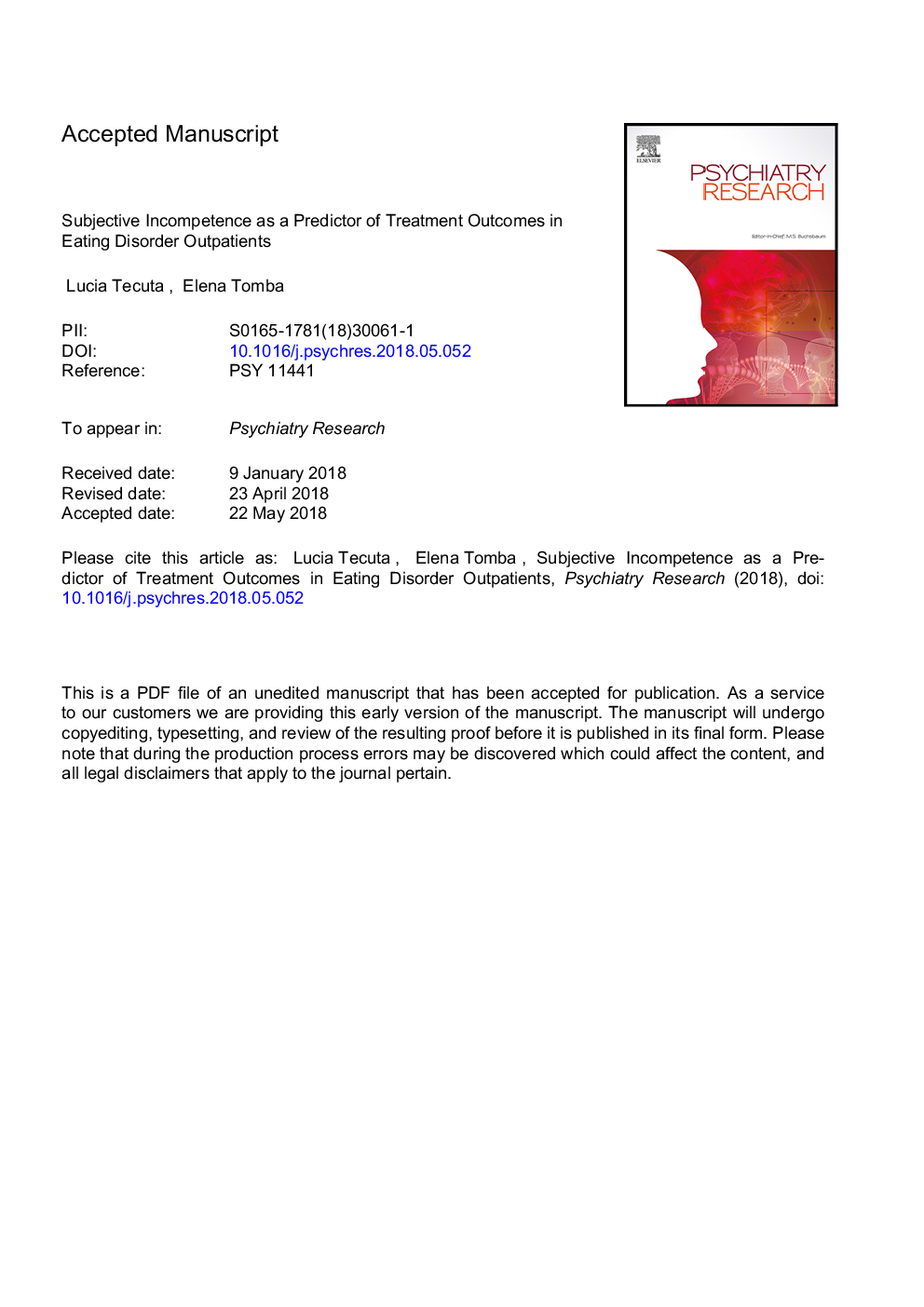| Article ID | Journal | Published Year | Pages | File Type |
|---|---|---|---|---|
| 6811297 | Psychiatry Research | 2018 | 26 Pages |
Abstract
Eating disorder (ED) patients are frequently characterized by feelings of inefficacy. The aims of the present study were to investigate subjective incompetence and whether its early modification in therapy is associated with treatment response in terms of both psychological distress and well-being. Sixty female ED outpatients undergoing cognitive-behaviorally-based treatment integrated with nutritional rehabilitation were evaluated using: Subjective Incompetence Scale (SIS), Eating Attitudes Test (EAT), Beck Depression Inventory (BDI-II), and Psychological Well-being Scales (PWB). Repeated measures analysis of variance to test changes in variables and hierarchical regression analyses to test the predictive role of SIS were conducted. Significant improvements in SIS, and in distress measures (EAT, BDI-II) and well-being (PWB) were observed by mid-treatment. Early SIS reductions in patients significantly predicted reductions in EAT-food and bulimic preoccupations, EAT-oral control and EAT-dietary restraint scores, independently of initial depressive symptomatology and illness severity. Gains in three PWB dimensions (environmental mastery, purpose in life, self-acceptance) were also predicted by changes in subjective incompetence. Treatment response might be enhanced by targeting more specifically persistent feelings of incompetence associated with ED symptomatology and compromised psychological well-being dimensions. Such paucities in positive functioning are central themes in EDs and if left untreated might represent obstacles to recovery.
Keywords
Related Topics
Life Sciences
Neuroscience
Biological Psychiatry
Authors
Lucia Tecuta, Elena Tomba,
